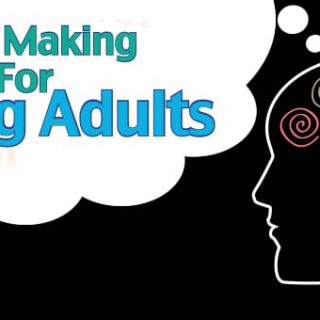Tips to Imbibe Decision Making skills in children..
Struggling with indecision is like being stuck in the mud. There is no a more miserable human being than one in whom nothing is habitual but indecision. People who have the hardest time making decisions, mostly have these issues starting from a very young age.
- Distractions
In this day and age there are too many distractions that can deter us from our goals. With Social Media being a big cause of this, many people are constantly putting off things that are meant to be done now. Add to that mobile games such as PUBG and Fortnite and the distraction factor goes through. - Laziness
Another major reason for many people dont make decisions is simply due to laziness. This can be as simple as people not wanting to be put out in any way, or being unwilling to step outside their comfort zone. So it is easier to make no decision than it is to commit to a course of action. It is important to realise that making no decision is a decision in its own right, just not a very proactive and positive decision. - Fear
When we let fear rule our decision-making, we relinquish control over our lives, one decision at a time. Little by little, we become more reactive and less proactive. We don’t participate in the direction of the path we take, we just take it, without asking questions. - Lack of purpose
With the multitude of difficulties that exist around decision making, most are to do with a lack of clarity on their purpose or direction, and so no clear sense of what the decision should be through not knowing where you want the decision to take you.
Everything starts when they are young. The values and practices that are imbibed in children often manifest itself in their adult form. Some of the methods to ensure that good decision-making skills are developed are
- Ensure children to practice making decisions
Children should be given opportunities to make choices so that it can help build their sense of responsibility, as well as their decision-making skills. The choice they make should be theirs, so that they understand the consequences of that and how not to get discouraged by a wrong choice. Showing interest in their choice helps to reinforce that you see their decisions as important. - Value their opinions
Children have to be involved in the parents decision making. For example, you might say, “I’m trying to decide whether to go for a holiday. Which place do you suggest?” Children then feel that their voice matters and will build their confidence to speak up and make decisions more often. - Discuss the decision
It is important to ask open-ended questions that encourage children to think through their reasons for choosing an option. It helps them learn how to evaluate options and think through consequences. - Learning from mistakes
Parents should offer support, encouragement and emphasise any valuable lessons that can be learnt by your child’s failures and mistakes; also discuss with the child how they can bounce back in the wake of setbacks and failures by adopting the right approach. - Encourage children to set achievable goals
Setting their own goals to work towards encourages children to plan and think ahead. It helps them understand the link between making decisions and taking action.







